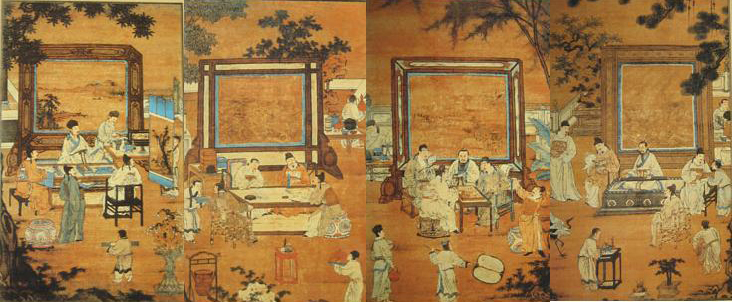Although I look forward to reading the “Best of the Year” posts from my fellow readers, I hesitated to write one myself. My reading rarely aligns with the year’s releases, and if I could I’d positively enjoin everyone from reading primarily contemporary writing. The past, too, is a foreign country, and, in the transnational spirit of Asymptote, it’s another country that we ought to make a habit of visiting.
Which is all to say that one of the best books I read this year was a few hundred years old: Wu Jingzi’s Rulinwaishi, translated by Gladys Yang and Yang Xianyi as The Scholars. Written around 1750 and set some three hundred years earlier in the Ming Dynasty, when bureaucrats were selected through examinations and the Confucian classics dominated Chinese society, The Scholars is one of the most vicious satires of pedantry and petty bureaucracy ever written. Most of Wu’s characters are marginal figures within the system. Like Wu himself, who was tragically frustrated in his official career, they’ve passed a few exams, but they’re not academically skilled enough to proceed to the lucrative posts the bureaucracy has to offer—not unless they flatter, cheat, and scrap their way to the top of the heap, and most of Wu’s characters are certainly not above that. We follow these Kings of Misrule as they move from county to county, engaging in academic dishonesty, impersonation, embezzlement, kidnapping, assault, licentiousness, boozing, schnooring, fixing court cases, aiding and abetting murders, all the way up to high treason. So it’s a fun campus novel, basically.
A lesser novel would content itself with serving as a three-ring circus of academics behaving badly, but The Scholars is thankfully more complex than that. The Scholars is one of the rare classic Chinese novels where the narrator refrains from commenting on the story. As a result, the character whose fair weather sycophantic friends are hailing him as the next Confucius in one chapter is unmasked as a fraud in the very next chapter, and it’s the reader who is hoodwinked in the meantime. This structure raises questions that can be quite cutting for the literati: how do we know if anyone is really good at what they do, or if anyone really knows anything? And if chasing the golden ring of bureaucratic success means risking a life of poverty—if today’s brilliant student, say, can be tomorrow’s frustrated part-time barista—to what extent can we be permitted to compromise our ethics? One good reason to visit the past: it may be a foreign country, but sometimes it seems it’s right across the border.
Unfortunately, the Yangs’ translation, although serviceable, is a bit outdated and clunky. I hope a noble scholar can do us the favor of updating the translation, much in the way David Tod Roy has with the Ming Dynasty erotic classic The Plum in the Golden Vase, which I look forward to reading next year.

